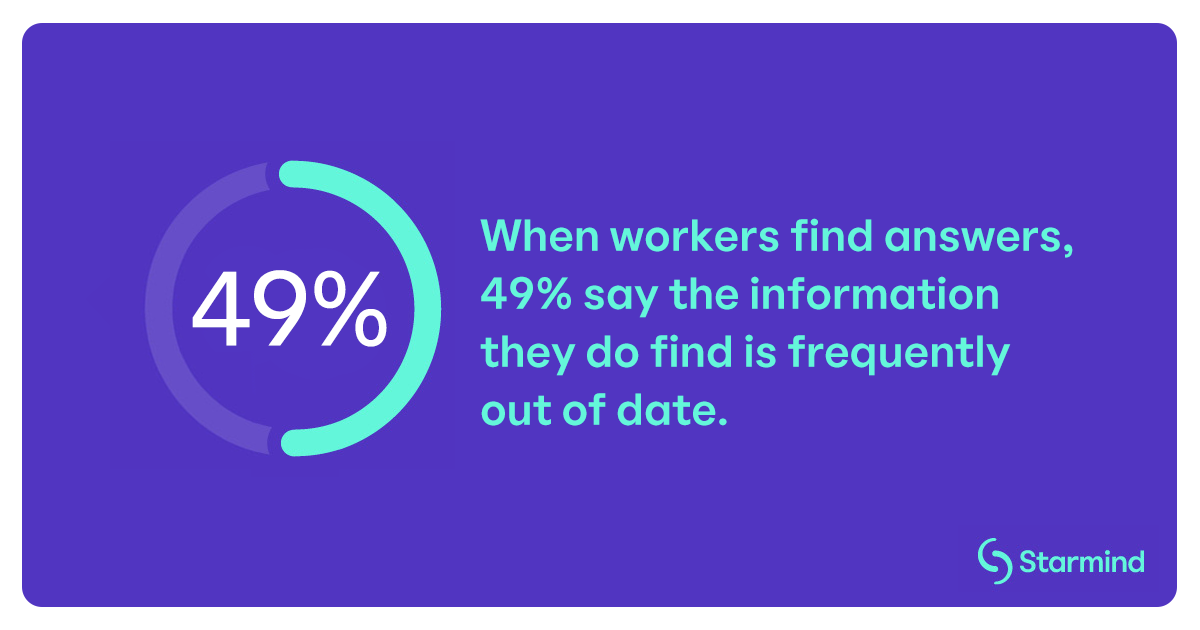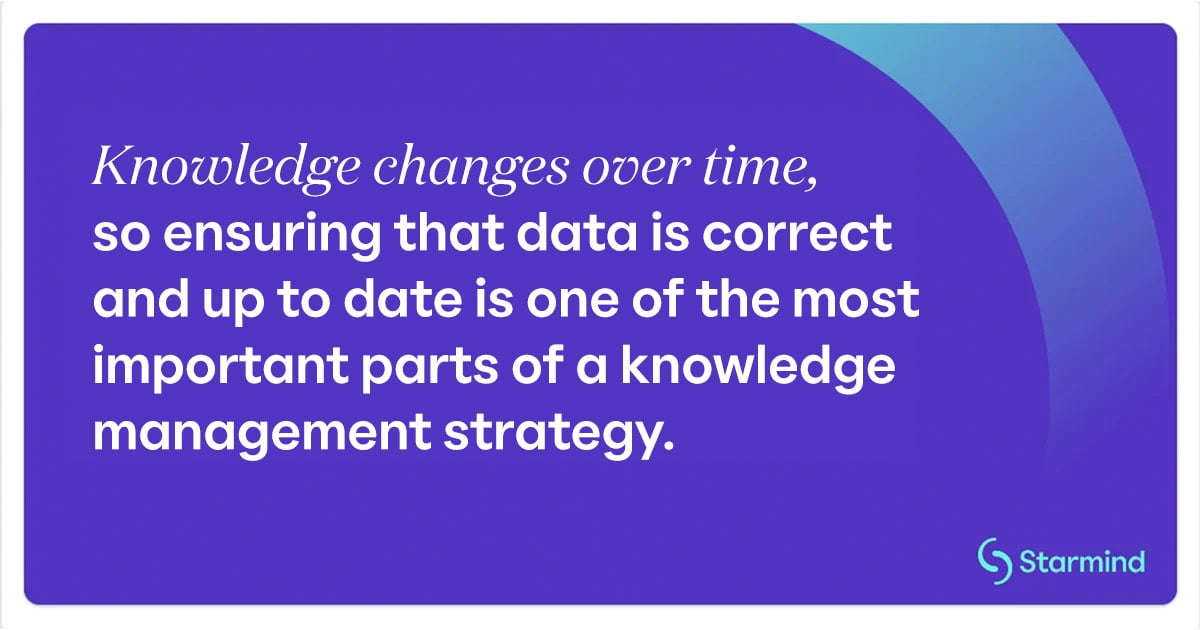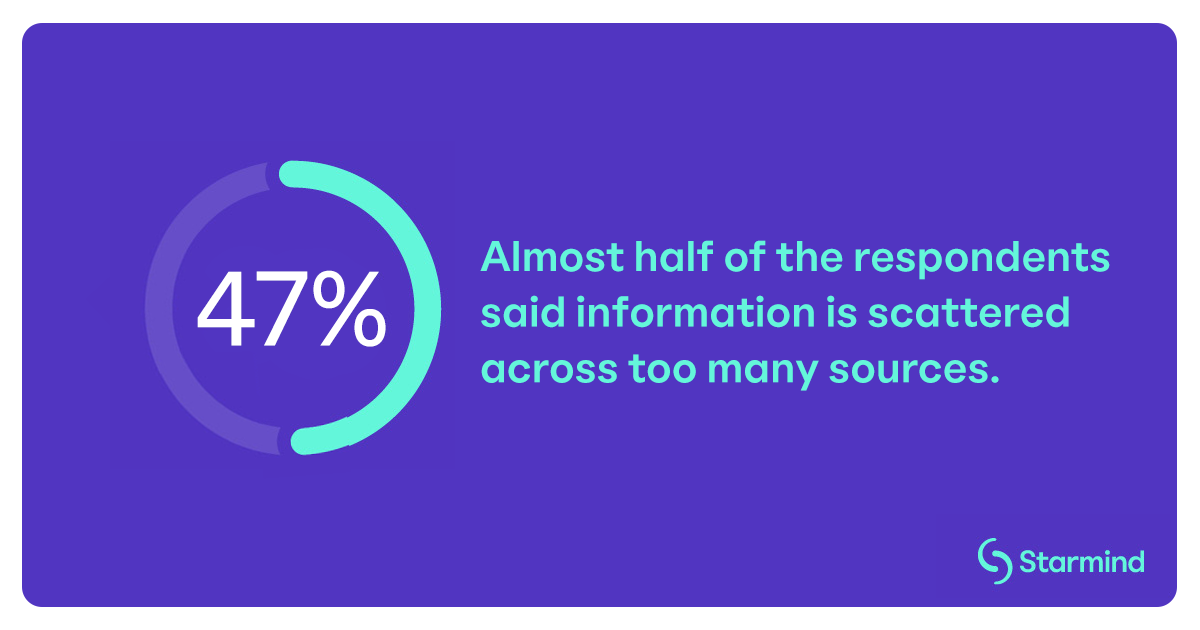The Ultimate Guide to Enterprise Knowledge Management

Contents
Modern enterprises are larger, more powerful and more connected than ever. But while they enjoy the advantages of scale, they also face unique challenges with communication and knowledge sharing. The larger and more fragmented organizations become, the more likely that information is trapped in silos, is undocumented or is inaccessible. To prevent this, you need an effective enterprise knowledge management strategy.
Employees can become frustrated when trying to navigate the wealth of your organization’s knowledge. Teams may have the resources they need, but locating those resources can be difficult. Without effective communication, teams with similar goals may duplicate work unintentionally, adding unnecessary time and costs to projects. Fortunately, this can be improved with workplace knowledge management.
Your company’s performance and knowledge management go hand in hand. With improved knowledge sharing at your organization, not only are teams faster and more efficient, but they also generate less waste and fewer errors. The quality of work improves, as insights from previous experience can be shared and applied broadly.
These are just a few examples of the benefits of a modern enterprise knowledge management strategy. Learn more about what enterprise knowledge management means, what benefits you’ll realize and how to implement this strategy in your enterprise organization.
What Is Enterprise Knowledge Management?
Knowledge management is the process of collecting, retaining and sharing knowledge from one individual or group to another. Enterprise knowledge management is distinct to these large, sprawling organizations that require an extensive network to collect and connect knowledge at all levels and across departments.
Knowledge management once primarily involved heavy documentation as an attempt to catalog the knowledge that employees obtained through their day-to-day experience. Now, technology such as artificial intelligence can help create real-time knowledge networks that provide teams with on-demand information and connect them with subject matter experts.
Why Do Enterprise Knowledge Management Systems Matter?
When team members have the knowledge and resources they need to make decisions, they don’t have to stop working to try to find answers. This helps them focus on the work they do best, rather than wasting minutes or hours searching for an answer that was readily available or could have been answered by a co-worker.
The sheer volume of information available on knowledge management platforms can make it difficult to find the answers they need, and even then, almost half (49%) have found that such data is often outdated.
The time it takes to search for information can be substantial in even in smaller organizations. As organizations scale their processes to the enterprise level, the number of employees and amount of data scale with them. Without a knowledge management system in place to facilitate communication and knowledge sharing, enterprises can struggle with the weight of their own success.
Silos also become more common as companies become larger and more complex. Knowledge might be shared only among small groups. Even when that information is documented, it might not be accessible throughout the organization. Siloed and missing information creates waste and adds time spent searching for information, and it can also create poor employee and customer experiences, too.
For example, many help desks are viewed by employees as a source for solutions and assistance. When tickets are submitted appropriately, team members know they can expect a resolution quickly.
Unfortunately for many companies, help desks are treated as a default rather than a last resort. Employees submit tickets for common issues and requests that could (and should) be self-managed. This takes time away from everyone involved. Using a human-centric knowledge management platform powered by AI can give employees quick and easy access to the knowledge they need to resolve issues on their own.

Benefits Of Enterprise Knowledge Management
Uses No-Code Tools
No-code tools are a great way to share knowledge and use powerful, highly customizable platforms that would typically be inaccessible without training and experience. Combine these options with a modern knowledge management system to fill knowledge gaps and make the system more accessible to other employees. Review available or potential software integrations that can make existing platforms more powerful and efficient without the need for extensive code development.
Eliminates Data Silos
Workers naturally interact with co-workers who share direct connections to their work, such as people in their department or function. But when communication outside of these core groups is limited or discouraged, knowledge becomes locked in scattered silos. Not only is knowledge inaccessible across the organization, but employees don’t know who the relevant subject matter experts are or how to locate them. Enterprise knowledge management can build a bridge between subject matter experts and employees who are seeking more information.
Questions Answered In Real Time
The average time it takes to answer a question is critical. It can be the difference between winning or losing a sale — or keeping an existing customer. Sometimes, time saved can even mean saving lives. Knowledge management systems can expedite knowledge sharing to get teams what they need and quickly enough to make a positive impact. Answers can be stored and recalled on demand. For more involved queries, subject matter experts can be connected to share their specific knowledge and experience.
Boost Productivity
Workers spend hours every day searching for information, but as much as 80% of knowledge in organizations isn’t documented. This means searches regularly fall short or yield outdated answers. This lack of up-to-date information, paired with platforms or information systems that are difficult to use, can be a recipe for disaster for teams.
Your help desk, for example, is tasked with assisting all employees with common activities such as onboarding or simple troubleshooting. Meanwhile, those same employees may be responsible for addressing bigger or more urgent requests, such as responding to a security issue or updating an internal network. As tickets and queues accumulate from common requests, less time is available for those more significant concerns.
On the other hand, a modern knowledge management system can help enterprises save time, self-resolve more requests and ensure that not only is information documented, but it’s also regularly updated and well-organized. All of these leads to higher productivity in time saved and increased focus on business-critical activities.
Easy Access To Information
Easy access to information is key for successfully managing knowledge. Your enterprise gains explicit and tacit knowledge every day, and it needs to capture and retain that knowledge in useful ways. While your teams likely have the knowledge necessary to address most issues, much of that knowledge isn’t documented, so employees don’t know who to approach for help.
Furthermore, many employees want to ask questions anonymously to avoid being perceived as incompetent or unqualified. Use a knowledge management system that doesn’t publicly identify users to get the most engagement from your teams. If one employee has a question, it’s likely others will, too.
When asked about challenges related to knowledge management, almost half of the respondents (47%) said information is scattered across too many sources. Meanwhile, 36% find it difficult to share information across different teams.
Reduce Knowledge Loss and Attrition
While you can’t eliminate knowledge loss, you can drastically reduce it. Knowledge can be lost in a number of ways, including employees leaving your company, processes or conditions changing, or employees forgetting about something that was never documented. Reduce this loss with a knowledge management system that documents knowledge and creates a network to make it easily accessible.
Many companies are still recovering from the Great Resignation and its resulting turnover and lost knowledge. Employees couldn’t be replaced, and knowledge couldn’t be shared fast enough, to cover all of the gaps in experience. Knowledge management systems not only capture and organize more of that knowledge, but they give expert employees the opportunity to contribute what they learn, creating a continuous cycle of knowledge enhancement.
Enterprise Knowledge Management Best Practices
Now that you know the benefits of enterprise knowledge management, you can explore some of the essential ways to encourage its development in your organization.
Generate Problem-Solving Ideas
When your teams have access to the right knowledge at the right time, they can focus on generating problem-solving ideas and innovative techniques rather than searching for information. There’s no need for employees to reinvent the wheel, as they can learn from and build upon the trials and successes of others in your organization. As you install a modern knowledge management approach, encourage collaboration so employees are empowered to pool resources and access knowledge from across your enterprise.
Source the Information and Data
Using a modern knowledge management approach can enable your enterprise to make knowledge sharing a natural part of daily workflows. This makes it easier for teams to access and share information while keeping knowledge accurate, up to date and structured.
Document management is certainly helpful, but it’s not feasible to expect to constantly document all of the (often repetitive) knowledge in your enterprise. When teams consistently access and share knowledge management systems, however, they can focus on the most relevant and timely knowledge first and expand from there. When there’s a standard process to collect, retain and access knowledge, teams know exactly where to go to find what they need.
Outline Projects Up Front
Project management starts before the work begins. Schedule a review of your needs and goals. Knowledge management systems can be used to identify strengths and weaknesses in specific areas or subjects, as well as identify subject matter experts that can contribute to the project. An outline can help project leaders appropriately allocate resources and team members, and ensure all project employees have access to the systems and information they need.
Continually Update The System
Knowledge changes over time, so ensuring that data is correct and up to date is one of the most important parts of a knowledge management strategy. Accessing incorrect information can sometimes be more harmful than not having any documentation. Regularly review and confirm that your knowledge bases and knowledge management system include relevant, quality information — and that employees are using the system to access and contribute information.

Elevate Knowledge Management for the Enterprise
When your enterprise has a modern knowledge management strategy, you can improve employee knowledge, productivity and engagement while making your sales team more efficient, setting up R&D projects for success and reducing support desk ticket backlogs. Enterprises need to be connected not just in terms of technology but also in the shared experiences and knowledge gained from all employees. When employees can access knowledge from anywhere in the organization and get connected with subject matter experts, you can truly leverage the scale that comes with being an enterprise-level company.
Solving for your enterprise knowledge management needs can be done through a modern knowledge management platform such as Starmind. By using AI to build a real-time knowledge network, teams can have on-demand access to the answers they need, right when they need them. Discover the benefits of knowledge management systems.
Sign up to receive latest stats, insights and events
Speak to an expert talk
We’re always ready to help, with support tailored to your business needs. Schedule a call with one of our team to:
- Learn more about how Starmind can connect knowledge across your business.
- Discover the use cases that best fit your needs.
- See how you can bring all of your company’s knowledge into one central platform.
- Discuss your bespoke pricing package.
Get in touch
Related posts
My rich text default content

My rich text default content

Left side rich text
Right side rich text
Pillar section rich text



